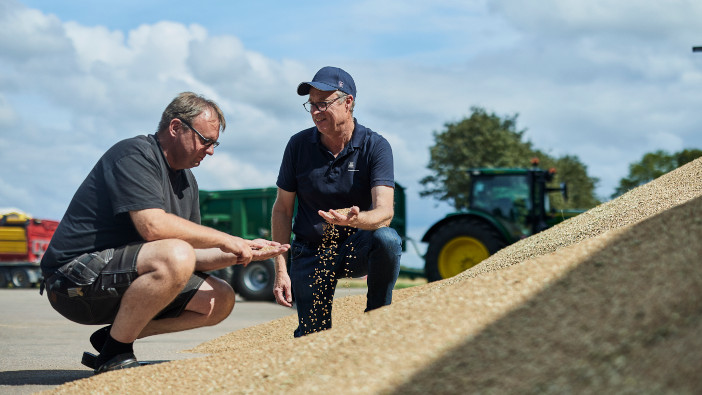In a move aimed at cutting the carbon footprint of the barley and wheat industry, Yara UK is to enter a long-term agreement with Simpsons Malt and Varda to explore the use of fossil free green fertilisers, data-based precision farming and Global Field ID.
The aim of the partnership is to support Simpsons Malt in reaching its carbon neutral objectives. The malting company’s goal is to achieve carbon neutral malting barley and distilling wheat production by 2030.
Andy Hindhaugh, commercial director of Simpsons Malt, said: “We are delighted to be entering this collaboration. As a Certified B Corporation, we are committed to minimising the environmental impact not only of our own operations, but throughout our wider supply chain.
“This exciting partnership gives us the opportunity to do exactly that, while also helping our brewing and distilling customers deliver on their own sustainability objectives.”
Improving efficiency
The demand for greater transparency and decarbonisation of farming practices has grown in recent years and the response from growers has been to explore ways to improve nutrient use efficiency (NUE) and reduce carbon footprints.
Yara’s involvement will support this drive, with the company reporting that for wheat crops, the green fertilisers can reduce carbon footprint by around 20% and, when combined with other agronomy innovations, the reductions can become even higher.
Jari Pentinmäki, managing director of Yara UK, said: “Through our green fertilizers, digital tools, and research led agronomic advice, growers can improve nutrient use efficiency and actively contribute to the reduction of their CO2 footprint. We are excited to be collaborating with Simpsons Malt and Varda, as we all look towards a nature positive food future.”
The ad-tech start-up, Varda, helps growers take that one step further with its geospatial technology that enables the integration of field level data. Its Global Field ID is an API-based system that assigns a Unique ID number to every agricultural field/land plot, reducing data fragmentation in the ag-food supply chain and supporting data sharing. Improving the granularity of data and enabling better integration between digital farming tools will save valuable time across all operations and allow growers to improve crop production management.
Davide Ceper, CEO of Varda, said: “Agriculture is uniquely positioned to positively contribute to the climate crisis by reducing its carbon footprint and improving its productivity. We are proud to play our part in helping pioneering organisations such as Simpson’s Malt in establishing a more transparent and collaborative food supply chain by organising and combining fragmented field data.’’
Read about Yara’s new UK global production plant development here


